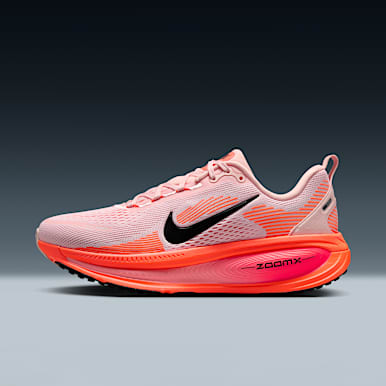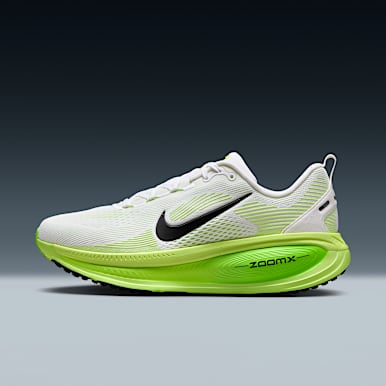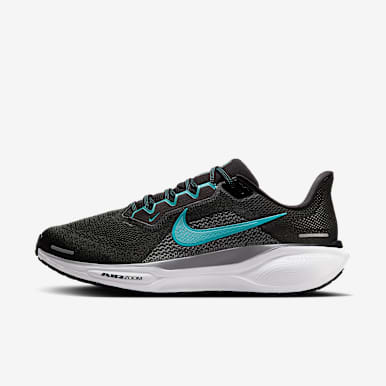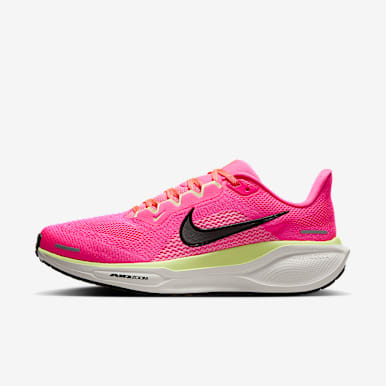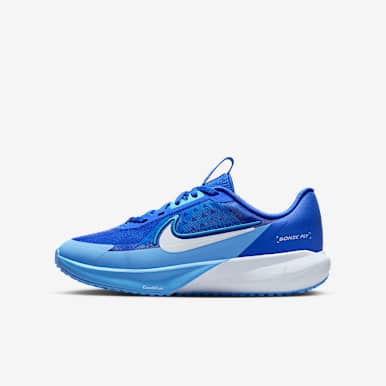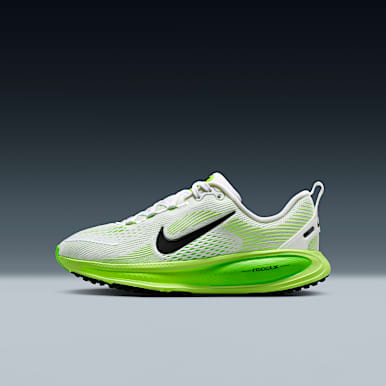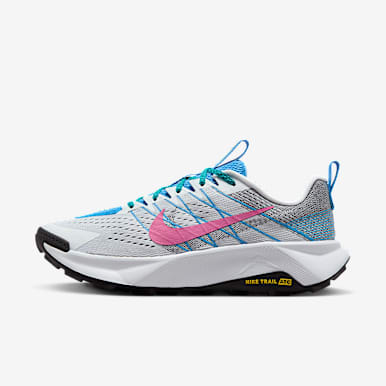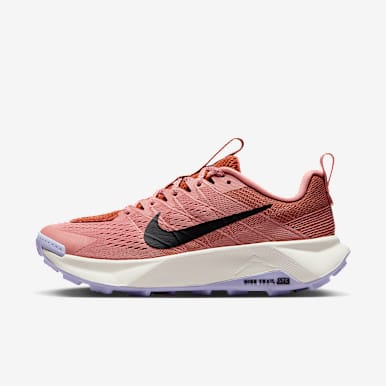8 Tips for Running with Your Dog
Health & Wellness
Here's how to hit the road with your furry friend in style and with safety in mind.
This is a modal window.
Running with your dog doesn't have to be about training for marathons or hitting record times. Instead, it can simply be about getting outside so that both you and your pet can enjoy the experience.
This means accepting certain things will be a little different when you go on a dog run rather than a solo jog. “A lot of dogs love to run, but they don’t necessarily know how to go on a run,” says Nike Running Global Head Coach Chris Bennett.
Here are eight tips to remember before grabbing the leash.
- Create a running ritual
- Let your pup set the pace
- Bring plenty of water
- Build up endurance over time
- Get an adjustable leash
- Choose the right terrain
- Know when it's time to stop
- Remember the post-run wash
How to Run With Your Dog
Remember to check the weather and take into consideration the dog breed (see more at the bottom of this article). If all conditions are good, follow this guide to have a successful run with your doggie.
1.Create a Running Ritual
Dogs are creatures of habit, which is why they appreciate routines. In order to keep them calm each time you’re getting ready for a run, try and go through the same series of activities, in the same order.
You might get ready in this order: Leash them first. Then, make them sit beside you as you put on your shoes. Grab your water bottle, and then head out together as part of your training plan.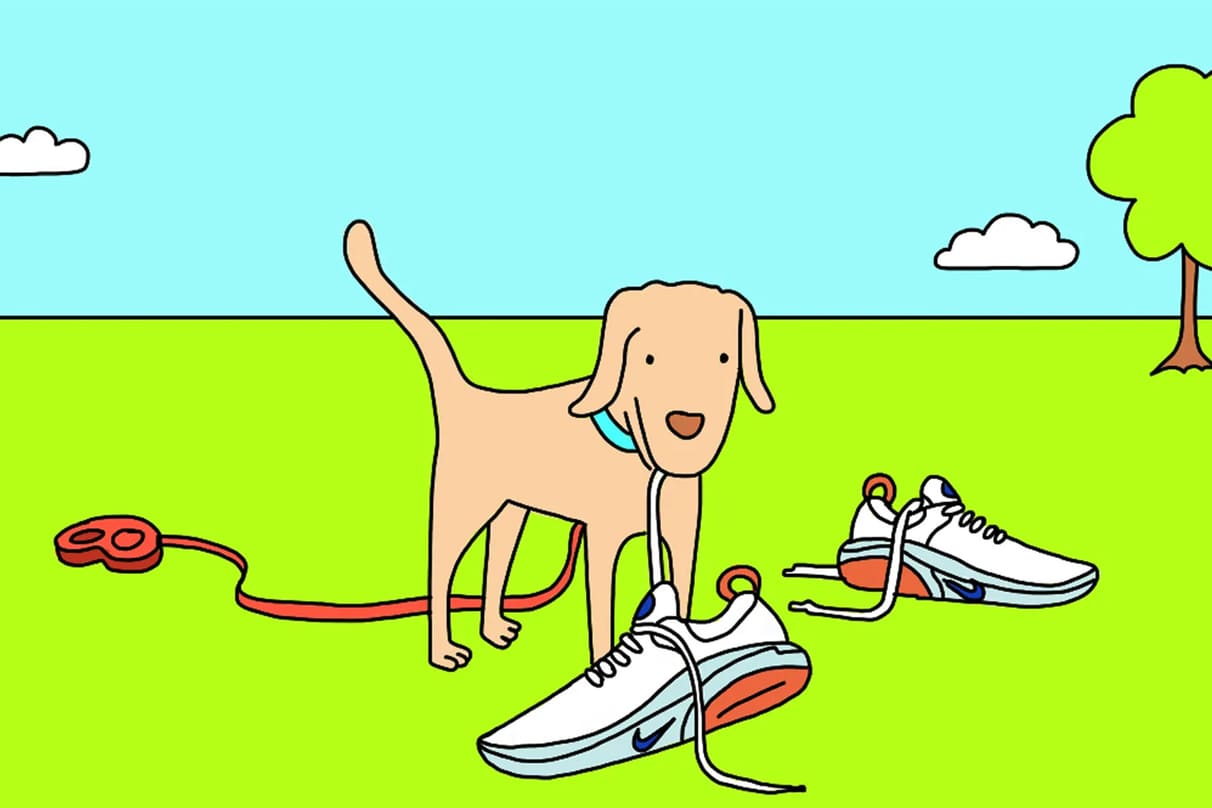
2.Find the Right Pace
Although you may want to book it through your run, it’s best to let your pup set the pace. You should also run with a little extra patience, giving your dog time to stop periodically, have as much water as they want, and sniff things out. Whether you've got a large dog or a smaller one, they’ll enjoy the stimulation of exploring a new environment and appreciate a few minutes to rest.

3.Keep Everyone Hydrated
When you run with your dog, you’ll need to double up on your water. This is because you’re hydrating yourself and your furry friend. Dogs should take several short breaks throughout a run to rest and drink.
You may want to invest in a small, dog-friendly inflatable water bowl to make it easier to share your water with your dog.
4.Build Up to a Long Run
Endurance is key for any runner, which means starting with short distances and adding length periodically until you reach your goal. Running dogs need the same attention, so start with short runs when you bring along your pup. This is also a great way to see if your dog is a runner, or even likes it.
If you’re trying to convince a reluctant participant, begin the process with walks. Then, slowly add in short stretches of running. Gradually increase the length of these runs until, after a few weeks, your dog is going the distance right alongside you.
5.Use an Adjustable Leash
Since you’re moving fast while on a run, you need an easy way to keep control of your dog. This is as much for their safety as for those around you. An adjustable leash lets you easily control how far your dog can get from you, allowing you to limit their wandering when there are dangers around like cars, or even other dogs. Pair the adjustable leash with a chest harness for extra support. Some people run with a hands-free leash.
Hang the harness and leash in a specific spot in your home, so your pup will know when it’s running time. You should also add in a few poop bags to that pile, cause you know, potty time happens.
6.Run on the Right Terrain
While your shoes have plenty of cushioning for rough roads and pavement, dogs’ paws aren’t always as durable. Paws can get sore on asphalt so try and find a run that includes stretches of soil, ground cover or sand. Even finding a trail run rather than a street run for when you take your pup with you can make everyone more comfortable.

7.Watch for Signs It’s Time to Stop
Although your dog can’t tell you when they’ve had enough running for the day, there are visible signs that it’s time to stop. These include:
- Excessive panting
- Lag in pace
- Refusal to run
- Extremely pulled back lips
- Dark red tongue
- Excessive drooling
Check your pup for these signs when you stop for water breaks, and if you notice anything, call it a day.
8.Do an After-Run Cleaning
Dogs don't necessarily need a full bath after a run, but their paws will require some attention. Debris from the run can get between your pup’s toes and lead to irritation or even an infection. Cleaning them with a warm, soapy rag after a run will prevent any issues.
Just like you have a routine with your pup before going on a run, make sure to establish one for after. Maybe you rinse off their feet outside before going in for a treat. Maybe you wash their feet first thing in the door. No matter when, clean up should be an important part of your cool down.
"Make sure you have some treats to celebrate after the run. You always want to celebrate."
Chris Bennett
Nike Running Global Head Coach
Why Bring Your Dog on Your Run
Dog owners know that exercise is just as important for their pets as it is for themselves. Going on a run together gives you both a great outlet to work up a sweat and share some time together. And for those with an active dog breed that needs a lot of exercise, running together lets you both blow off a little steam while avoiding being cooped up at home.
Running is also a great way to maintain a dog’s healthy weight, keep their mind sharp and positively contribute to their overall health and hardiness. Working a jog into your dog's day gives them something to look forward to, and it’s an easy way to keep you jogging regularly.
Find the Right Running Breeds
If you’re looking for a forever furry friend to run with, don't just pick any pup. Breed selection is important when looking for a running partner in your pup. Not all dogs are natural runners; some are simply not interested.
Dogs with short snouts and short legs often don't make the best runners. A bulldog, for instance, can't run in the way a retriever can. If you still want to get out and walk, breeds like pugs or dachshunds are great, but if you’re really running, consider one of the following breeds:
● Labs
● Border collies
● German shepherds
● Australian cattle dogs
● Huskies
● Weimaraners
● English setters
Having a dog that’s able to go the same distance as you on a run makes it easier to bring them along with you.

Check the Forecast
Weather matters when it comes to running outside with your pup. There are certain times of year when pet owners may have to say "no" to running together outside with their pooch. This happens most often when the weather reaches extremes in cold or heat.
In the Summer
Dogs don’t do well in heat or humidity, thanks to their fur coats. It’s best to postpone a run with your dog when it’s more than 80 degrees or the humidity is more than 70 percent. This may mean moving an afternoon run to the morning before the temperature rises, or holding off altogether during a heat wave.
Running with your dog in hot weather can increase their risk of suffering from heat stroke, dehydration or heat exhaustion. These can all be serious conditions and may require an immediate trip to the vet.
Hard surfaces like pavement can also damage your dog’s paws when it’s too hot outside, so consider running on natural grass or trail running in the shade when things heat up. Since the pavement traps heat, it’s always hotter than the air outside. Test the pavement temperature by seeing if you can comfortably hold your hand to it for ten seconds, according to the American Kennel Club.
In the Winter
It’s easier to run with dogs in the colder weather. Even though there are some dangers, many dogs love being outside in the cold. They do have a built-in fur coat, after all.
To judge whether or not you can run with your dog in cold weather is easy. If it’s too cold for you, it’s too cold for them. Even if you do go out, it’s best to limit runs to shorter distances in the winter to play it safe.
How much your dog loves the cold depends on their breed, size and the thickness of their coat. Cold-weather running won’t be for every dog, and you do have to watch out for dangers such as frostbite, windburn and exposure. It’s also good to remember that dogs get colder faster than people do since they’re naturally closer to the ground.
You’ll also need to watch out for your dog’s paws in the cold weather, just like when it’s hot. You might want to buy some puppy booties to not only help keep their paws warm, but also to protect them from salt and chemical deicers on the road. Both of these can damage a dog’s soft paws.
Take Your Dog on a Nike Guided Run
The Nike Run Club has audio guided runs for every need. Hear from Nike coaches, athletes, and special guests who encourage you every step of the way.
